












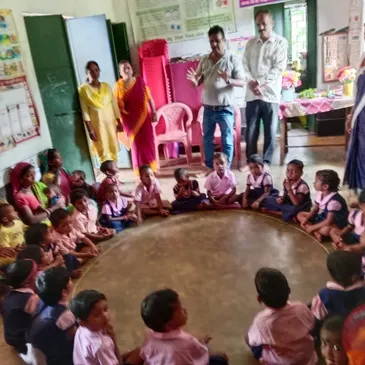
We focus on rights based approach towards mainstreaming children in remote tribal pocket through educational approach and promoting enabled environment having definite community participation. As education remains as one of our primary domains, we work with Anganwadis for pre-school development, with Primary and UP schools for quality approach in foundational learning through supplementary teachers support and innovative methods in bridging learning gap, basic skill development of children.
Aptly, we focus on popularizing science education in UP and High schools with customized science kits that promotes hands on experience with the concept of learning by doing in remote and interior tribal pockets. To keep a continuity we also focus on career counseling to help students to choose their career options based on interest and capability in which high school and Higher secondary school students are involved. It incorporates different modules and Holland code test. The organization has reached out to more than 10000 children in 2 blocks (Telkoi and Banspal) of Keonjhar district.
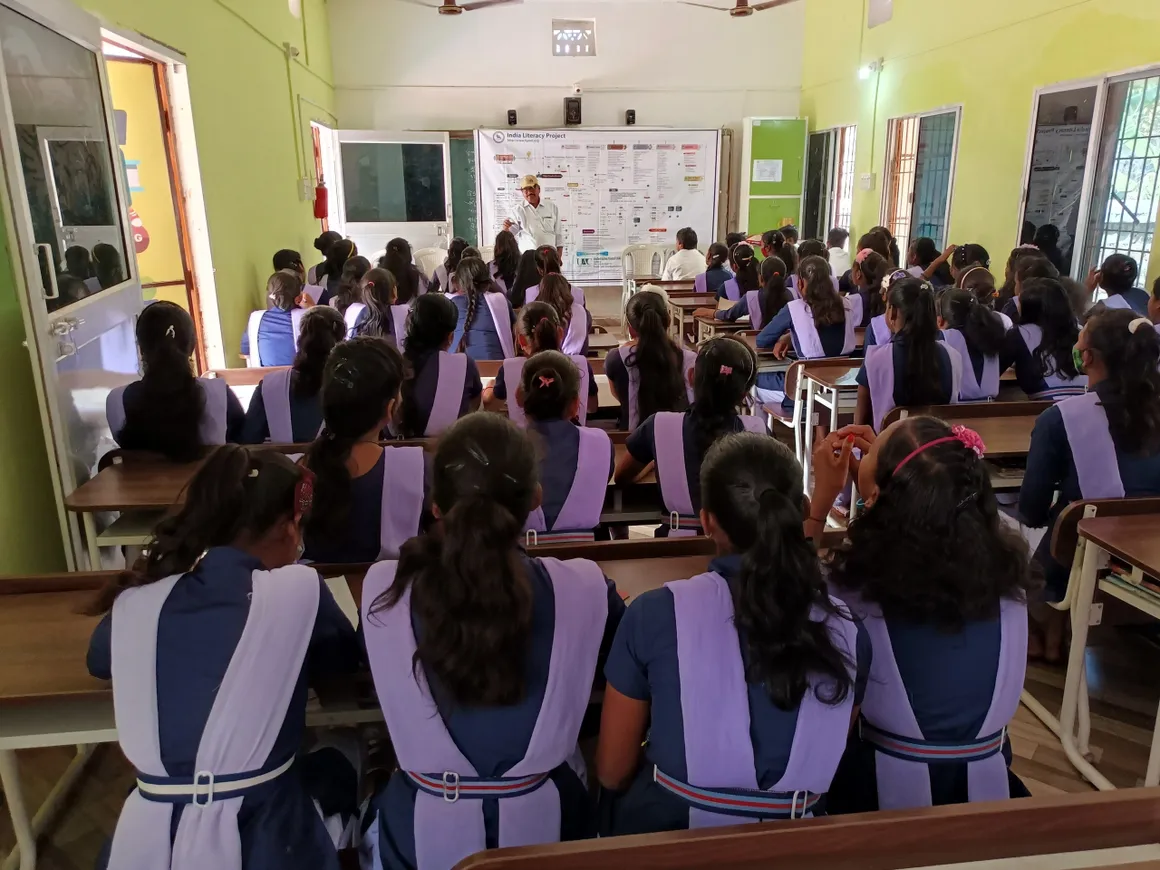
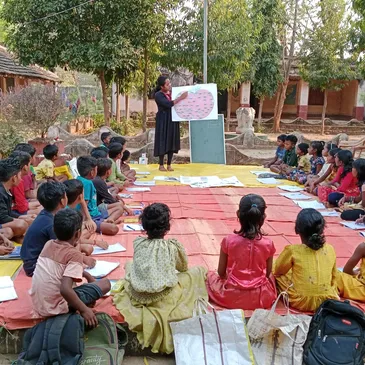
On our intervention we prioritize on UN convention on Child Rights focusing on 4 important elements of Survival, Protection, Participation and Development. Also, the organization has worked on bringing out of school and non-school going children into school education. Capacity building of SMC members and initiating school development plan have contributed a lot for continuity of children into school education.
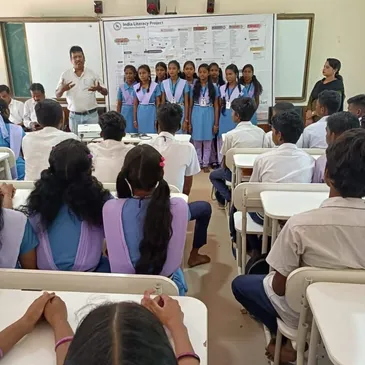
Pre-school development lays the foundation for a child’s lifelong learning and growth. By creating a nurturing environment that encourages curiosity, creativity, and social interaction, it helps children build essential skills in language, numeracy, and emotional well-being. Quality pre-school education not only prepares children for formal schooling but also promotes confidence, inclusivity, and holistic development.
Pre-schooling is one of the important element of developing psycho-social and cognitive development of 3 -6 years of children with the preparedness for school readiness. This is with the principle of keeping young children to continue with school education. UAC has a well groomed team, which supports Anganwadis in interior tribal belt for developing pre-school education as well as building capacities of Anganwadi workers for pre-school education.
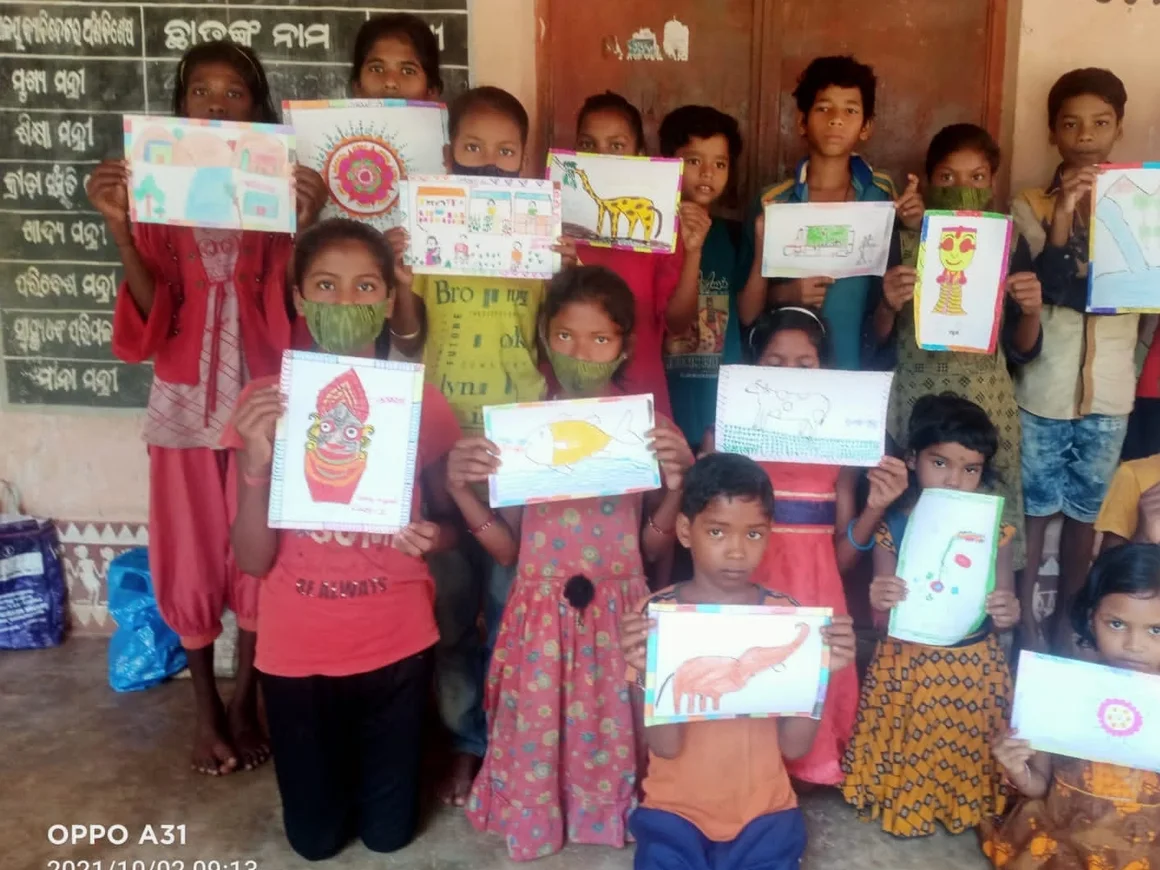
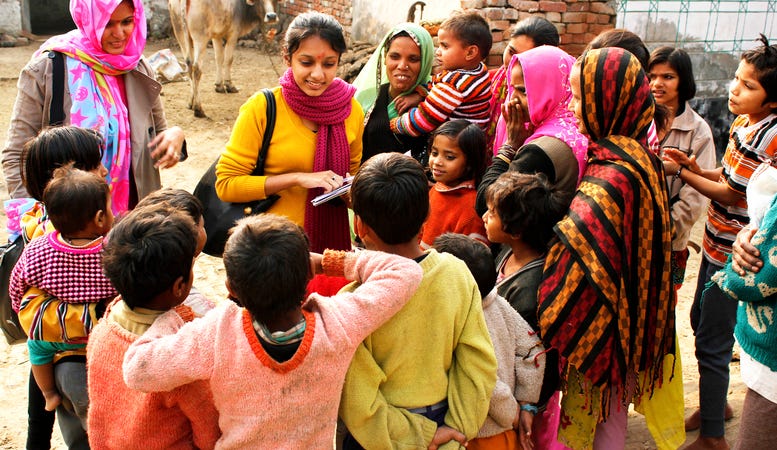
Nutritional improvement of young children focuses on ensuring access to balanced diets, micronutrients, and healthy practices. Proper nutrition during early years strengthens immunity, supports physical and cognitive growth, and reduces risks of malnutrition, laying a strong foundation for lifelong health and development.
Nutrition remains one of the critical challenge with young children among vulnerable communities of scheduled tribes, Scheduled caste and OBCs inhabiting interior pockets with poor access to nutritional needs. It is found with high level of Severely Acute Malnutrition (SAM) and poor level of Body Mass Index among children. The organization has initiated awareness in community for nutritional garden promotion, changing food habits and also, on a pilot basis we have initiated milk feeding program 6 days a week for young children in select villages. It is to be up-scaled now for better impact.
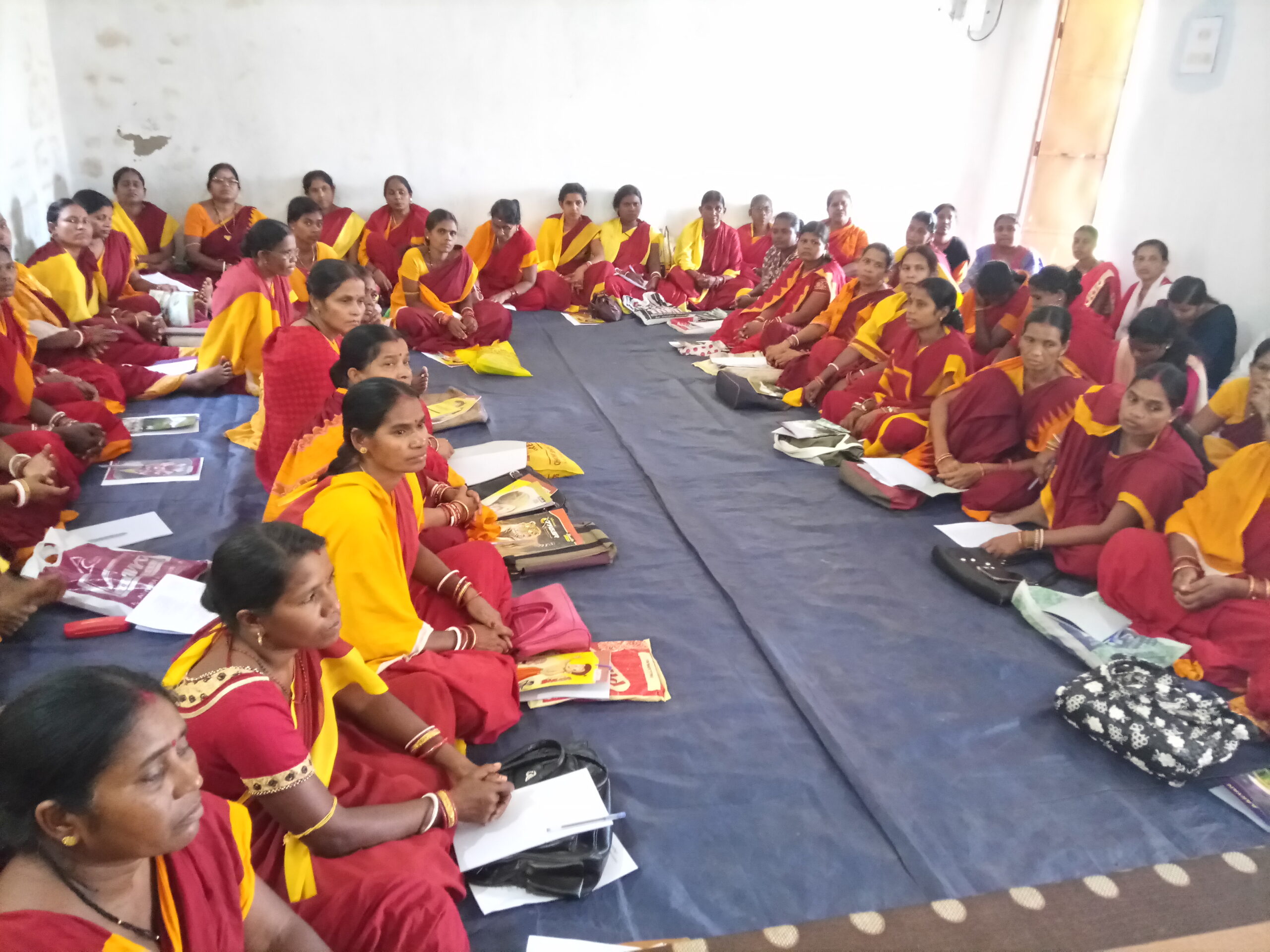
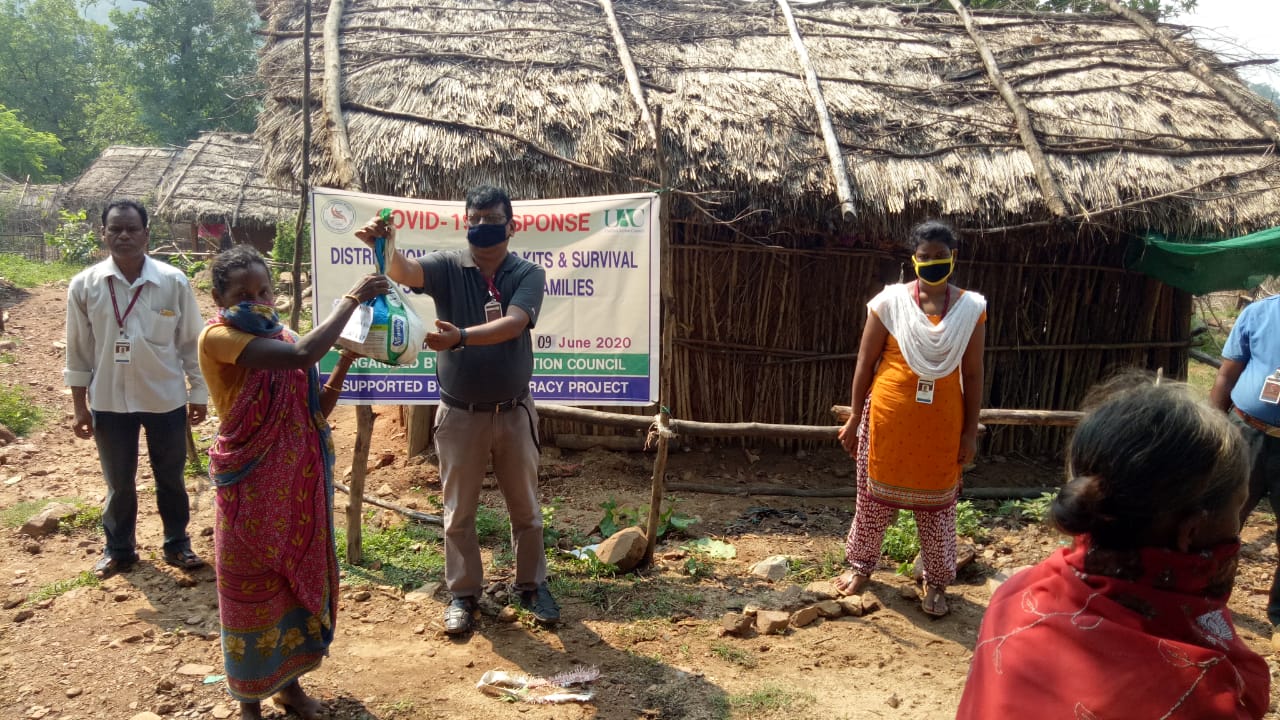
Nutrition is the cornerstone of well-being. We promote balanced diets and nutritional awareness, especially for children and mothers, to combat undernourishment and improve community health outcomes across rural and marginalized areas.
Ensuring food security means providing consistent access to sufficient, safe, and nutritious food. It supports healthy growth, boosts immunity, and prevents malnutrition—particularly in vulnerable communities facing poverty, disasters, or systemic inequality.
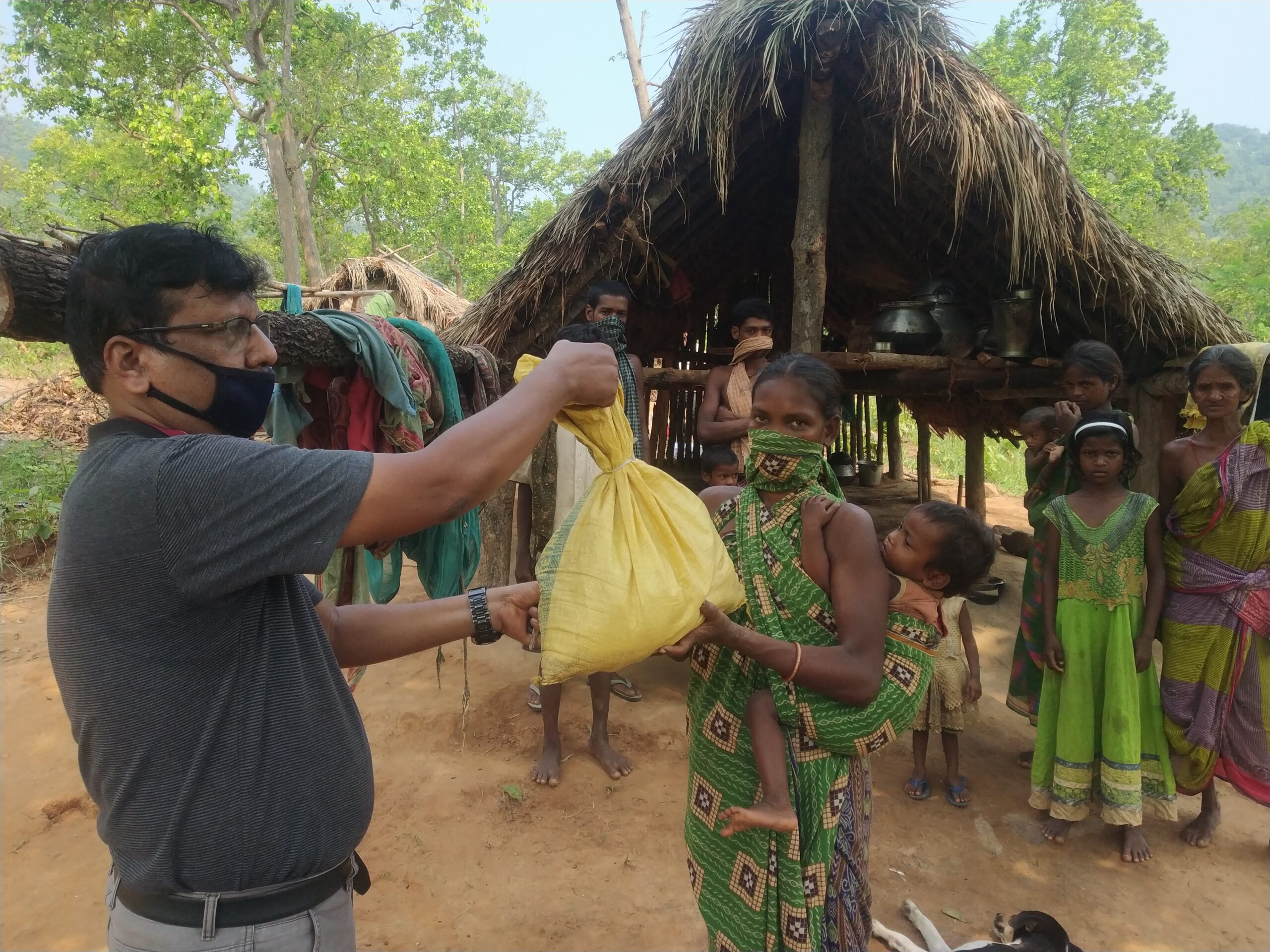
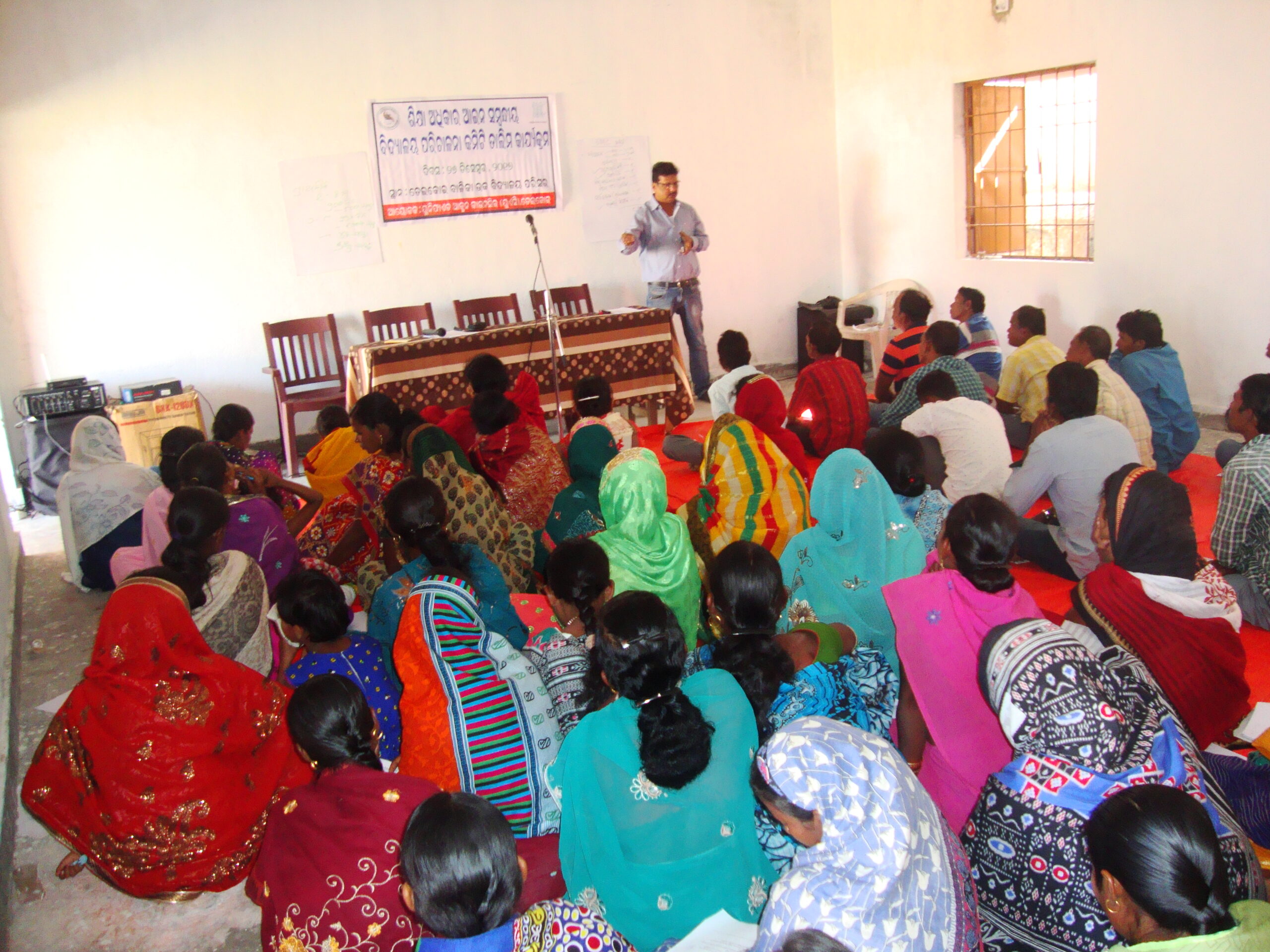
Livelihood coping mechanisms empower vulnerable communities to adapt and sustain themselves during economic and environmental challenges. By promoting skill development, alternative income sources, and resource management, these initiatives strengthen resilience, reduce dependency, and ensure long-term social and economic security.
Poor communities especially tribals and dalit face critical livelihood challenges resulting in poor subsistence following distress sale of Minor Forest Produces. Organization has promoted Kishori Mahila Jeevika Gosthis in tribal communities so as to support micro initiative for gathering, processing and marketing of minor forest produces at a reasonable price. Initiative has been taken for refining skills of traditional artisans for value added products. The backward and forward linkages have provided some space.
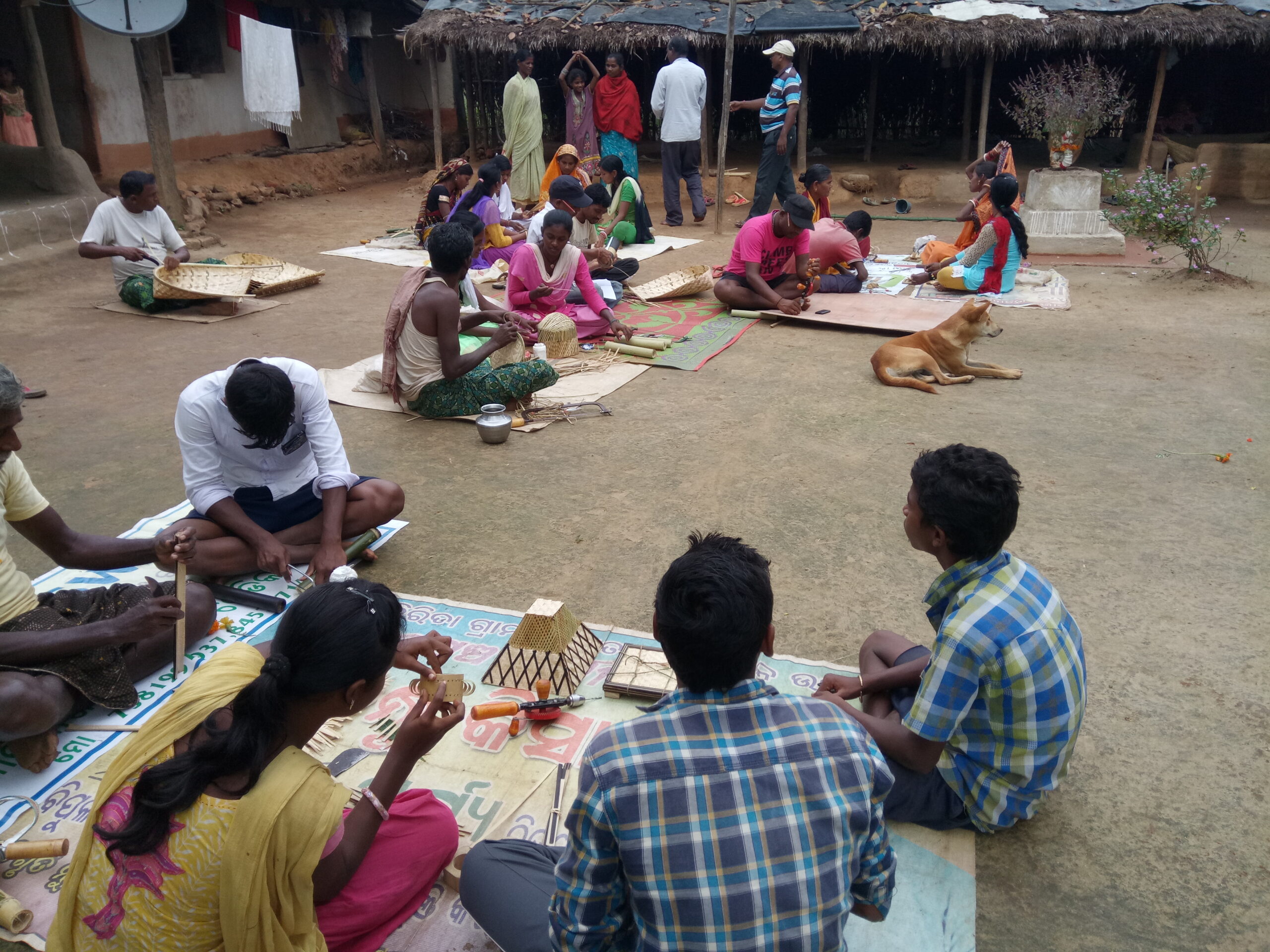
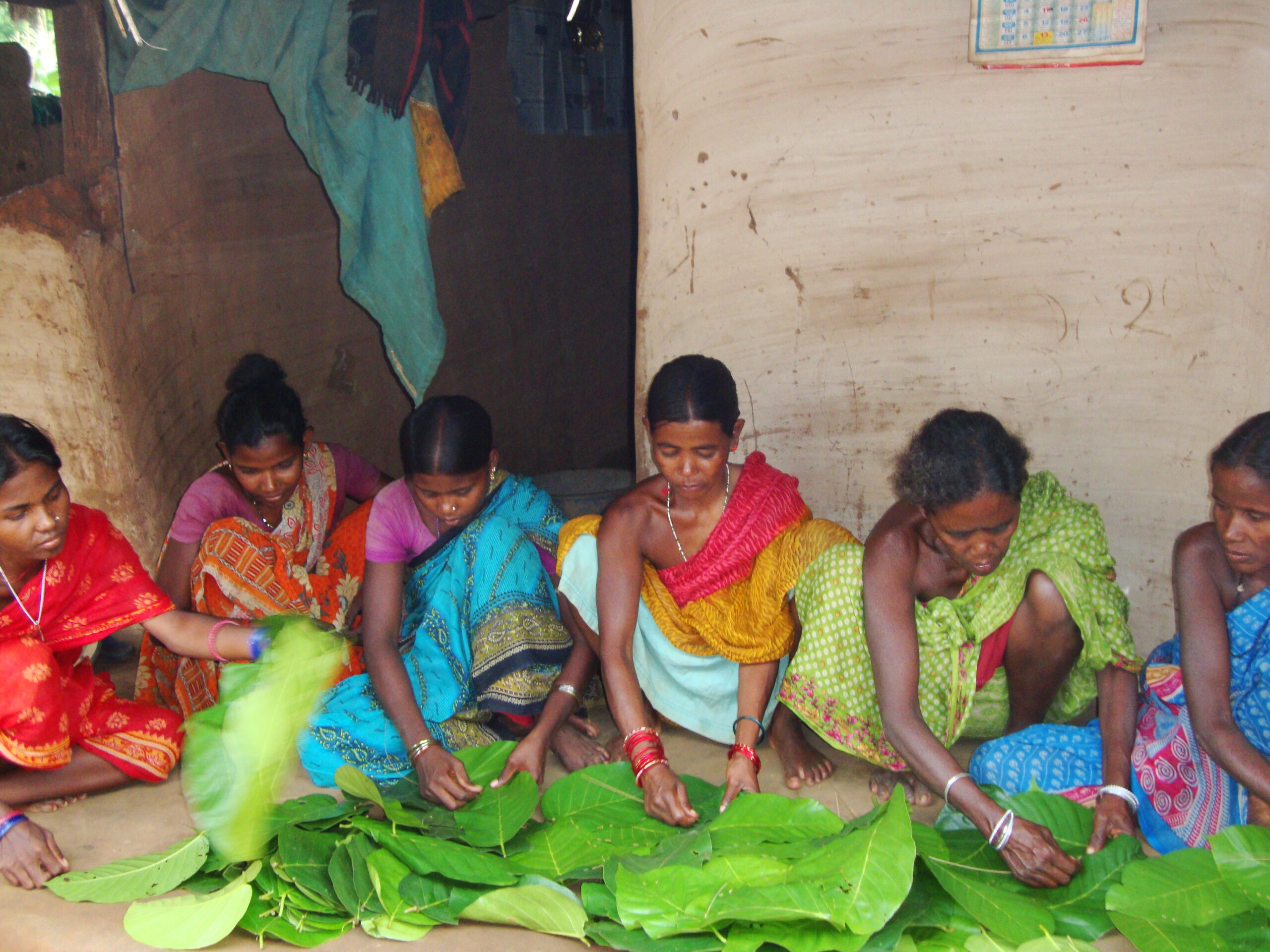
Our livelihood programs focus on marginalized communities, especially women and youth, by equipping them with tools, knowledge, and access to resources that enhance employability and foster entrepreneurship for long-term economic independence.
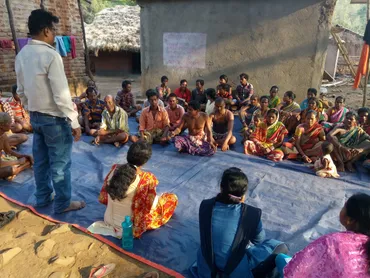
Community level forest management and drawing the benefits of disposal of minor forest produces have provided some space to communities. The organization has taken up the initiative in 7 blocks with participation of civil societies.

COVID-19 disaster and its subsequent period had a disastrous consequences on the lives of common people. Many out-migrant returnees were put in quarantines. In the critical period providing volunteer support at quarantine centres, providing hygienic kits and masks to vulnerable families, making community awareness on maintaining social distance and supporting medicines as well as medical kits to hospitals for dealing with patients. The effort proved much useful in providing services that reached out to more than one lakh population.

In community based approach gender mainstreaming remains priority focus. We implement and support action on the ground that aims at improving quality of life through inclusion process and initiatives that include people’s access and control over natural resources, livelihood development and increasing access to health services and delivery system. We also implement advocacy, research and capacity building projects that focus on enhancing knowledge and involving policymakers, the media and the private sector on identified priority issues. The projects and programmes that we implement are innovative, scalable and aim at changing socio-economic outcomes.
Opening of new primary schools in neighborhood as per RTE (Right of Children to Free and Compulsory Education) Act-2009, opening of Anganwadis in uncovered hamlets/ villages of tribal & backward population for Food and Nutritional Rights (National Food Security Act -2003), No capitation fee for children getting admission into school as per RTE Act, No corporal punishment in schools, Implementation of Child Labour (Prohibiton and Regulation) Act 2016, Prevention of Immoral Trafficking Act, Prohibition of Child Marriage Act 2016 and effective tracking through Kishori Balika Mandal having coordination with CDPO, DCPU and CWC and Forest Right Act- 2007 Recognition of Forest Rights of Scheduled Tribes and Other traditional Forest Dwellers. Such initiatives have proved much useful
